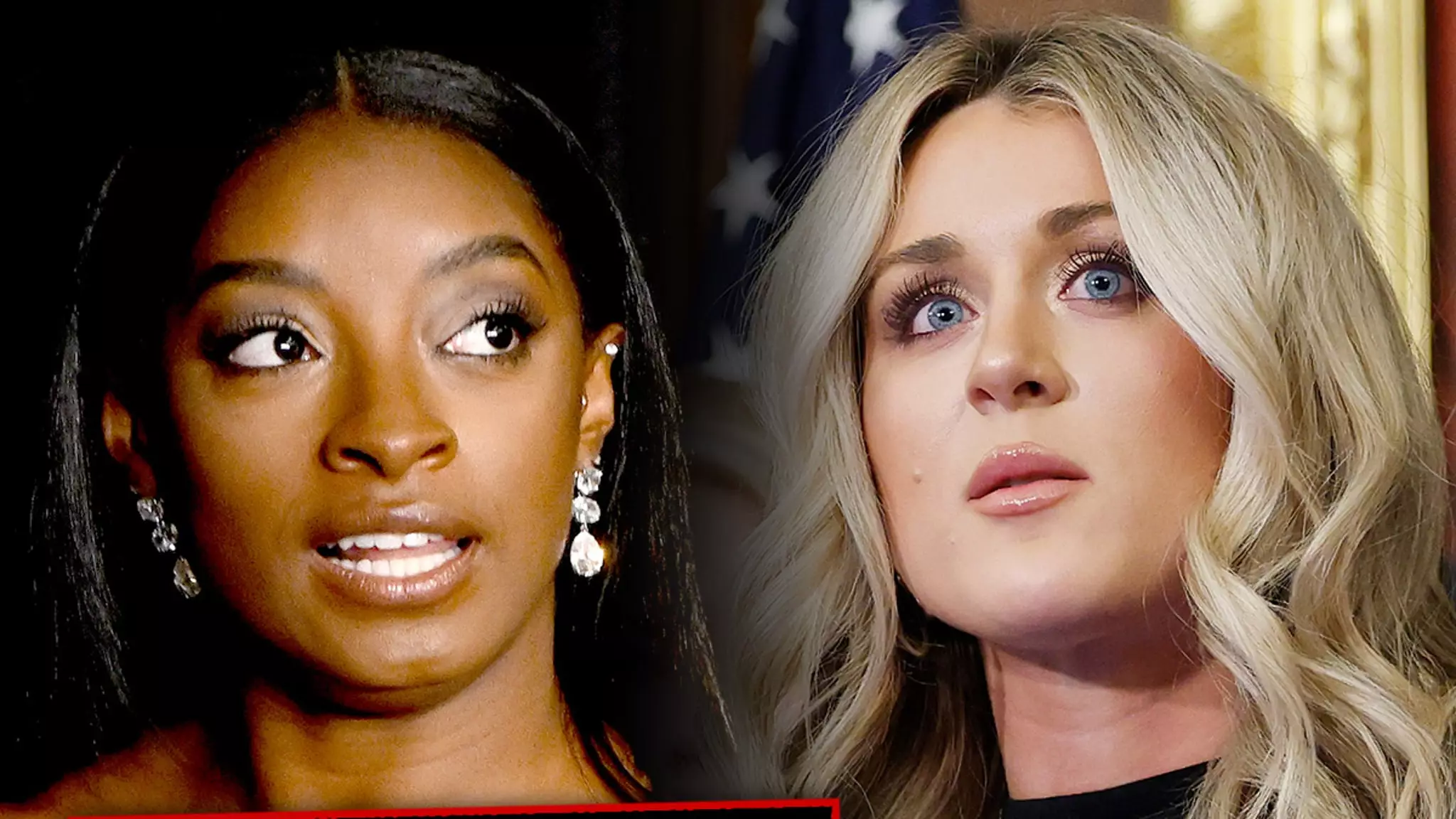In an age marked by increasing awareness of gender identity and inclusion, the discourse surrounding trans athletes in competitive sports is seizing headlines and sparking fierce debates. A recent clash between seven-time Olympic gold medalist Simone Biles and conservative activist Riley Gaines epitomizes this growing contention. The conflict ignited when Gaines criticized a Minnesota high school’s celebration of a trans athlete who played a pivotal role in securing the state championship. Sporting emotional weight and a rigid stance against trans inclusion in women’s sports, Gaines’s comments drew a sharp retort from Biles, igniting a firestorm of social media responses that reflect deeper societal divides.
Biles, an icon of resilience and excellence, does not shy away from addressing matters of equality and inclusion. Her comments directed at Gaines, calling her a “sore loser” and advising her to use her platform for inclusivity rather than division, symbolize a more progressive view on the involvement of trans individuals in sports. These exchanges highlight the complexity surrounding the inclusion of trans athletes in categories traditionally designated for women.
The Commentary That Sparked Controversy
Riley Gaines’s comment, implying that a trans athlete in a women’s championship is intrinsically wrong because of their gender identity, is symptomatic of a deeper fear surrounding women’s sports. Critics argue that echoing sentiments of exclusion only feeds into a narrative that seeks to undermine the rights of transgender athletes. For many, the mere identification as a woman could mean years of battling societal and personal adversity, which is disregarded when discussions become polarized into binary categories of ‘male’ and ‘female’.
Biles’s response sheds light on the discrepancy between personal achievement and collective progress. When somebody like Gaines, who has her own athletic accolades, resorts to name-calling and division rather than engaging in substantive discussions about inclusive practices, it demonstrates a reluctance to adapt to evolving social norms.
Confronting Misconceptions
One of the most contentious points in Gaines’s stance rests in the misconception that trans women athletes somehow threaten the integrity or success of biological women in sports. Biles seems to challenge this notion, suggesting that merit, skill, and everyone’s right to compete should be at the forefront of any discussion surrounding sports. She invokes a refreshing ethos that a true competitor should uplift others relative to their talent rather than imposing limitations based on identity.
In a particularly striking moment, Biles turned Gaines’s criticisms back on themselves by insinuating that instead of directing animosity towards individuals facing their own battles, focus might be better directed toward uplifting the quality of competition in women’s sports. Through her lens, empowering all athletes, irrespective of gender identity, could enrich the overall field of competition.
Impact of This Dialogue on Women’s Sports
The fact that such an intense debate is being waged in public forums signals a pivotal moment for women’s sports. It’s an opportunity for dialogue—albeit a contentious one—that may redefine the boundaries of athletic participation and gender equality for generations. As athletes like Biles advocate for inclusivity while facing pushbacks from vocal detractors, the crux of this matter could very well shape policies and sentiments in sports organizations around the world.
Opinions and stances are entrenched; however, Biles’s willingness to engage while asserting her dignity highlights a model of advocacy rooted in compassion rather than divisiveness. Her insistence on creating a supportive environment for all athletes juxtaposes sharply with Gaines’s polemic, underscoring the vast array of opinions that exist in society today.
By exposing the inadequacies and harmful paradigms that underpin an exclusionary rhetoric, Biles amplifies a message that resonates with many—one where inclusion over exclusion is not merely aspirational, but essential for the future of sports. As more athletes, fans, and stakeholders join in this necessary conversation, the landscape of competitive sports may evolve into a more equitable space where diversity is celebrated rather than marginalized. The journey towards this integration may be fraught with conflict, but it is one that demands our attention, empathy, and action.

